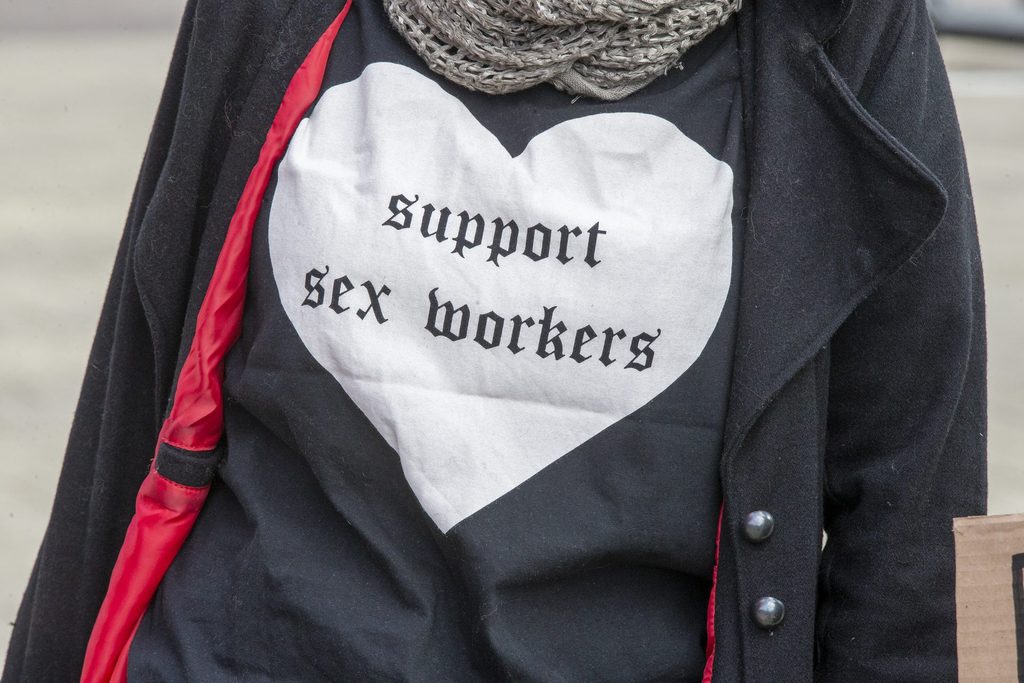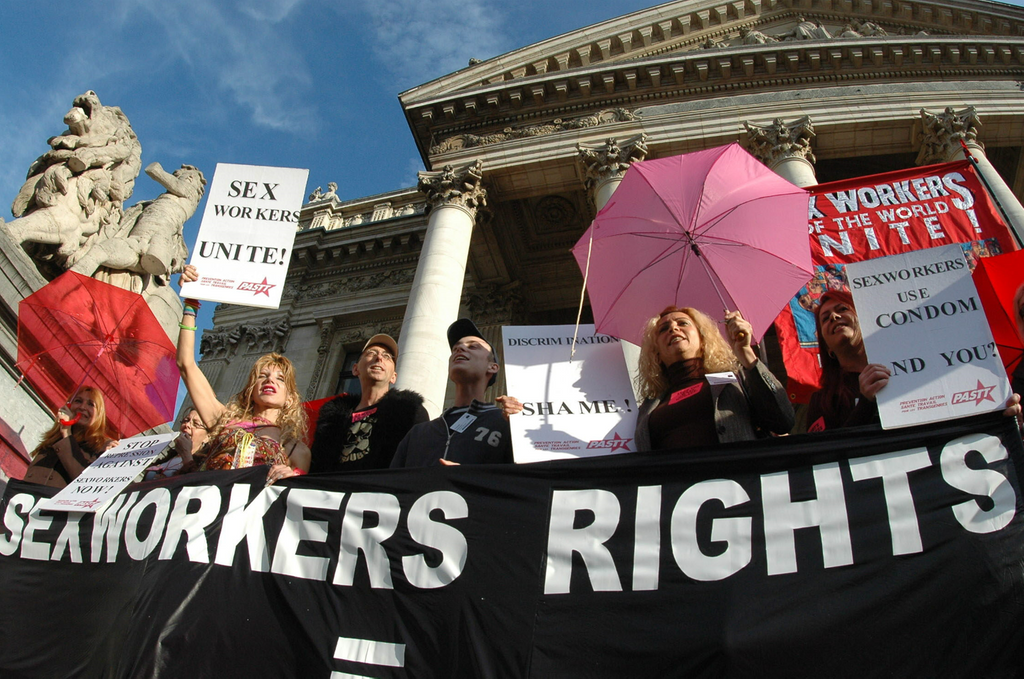As the European Parliament is set to vote on the Prostitution Report, which would set the wheels in motion to criminalise sex work throughout the European Union, over a dozen human rights organisations are calling on MEPs to vote against the report.
Criminalising the purchase of sex through the 'Nordic Model' used in Sweden (which criminalises buyers and partially decriminalises workers), as the report proposes, does not eradicate sex work but instead forces sex workers to operate in dangerous and clandestine environments, the organisations argue in an open letter.
"We oppose all forms of criminalisation in favour of the full decriminalisation of sex work," Marin Scarlett, Campaign and Communications Officer at the European Sex Worker Rights Alliance (ESWA), told The Brussels Times. "The vast majority of evidence shows that any form of criminalisation causes massive harm to sex workers."
Criminalising sex work does not protect the rights of women and others engaged in sex work, and does not help address the issues of human trafficking and forced labour, organisations argue. Therefore, they are calling on MEPs to vote against the Prostitution Report today.
She explained that criminalising it increases the workers' likelihood of experiencing violence, contracting HIV/STIs and limits their access to healthcare or justice. Leading the opposition are 13 leading human rights organisations like Amnesty International and Human Rights Watch, as well as UN health organisations like UNAIDS and the World Health Organisation (WHO).
In the letter, the organisations call on all MEPs to reject the report. "We have decades of experience and expertise in addressing women’s rights and gender equality, human rights, sexual and reproductive health and rights, HIV, harm reduction, the rights of LGBTQ people, digital rights, human trafficking, migration, racial justice and criminal justice."
Within these numerous fields of expertise, all 13 organisations have come to the same conclusion: "Criminalisation of any aspect of sex work, which is proposed by this report, does not protect the rights of women and others engaged in sex work for manifold reasons, and does not help address the very serious issue of human trafficking and forced labour."
Regulation, not lawlessness
"Full decriminalisation does not mean lawlessness. It means removing our industry from regulation under criminal law, starting from the default position that sex work is not a crime," Scarlett of ESWA said.
This would mean that workplaces can instead be regulated under employment law – as is currently being negotiated in Belgium. "If a sex worker experiences criminal behaviour such as theft or assault, they are able to report it without fearing that they themselves will face police prosecution."
Similarly, Scarlett said, they would be able to disclose their work to healthcare professionals if they so choose and not fear criminalisation for carrying safer sex supplies such as condoms, for example.

Credit: Belga/Nicholas Maeterlinck
Last year, Belgium became the first country in Europe to regulate sex work by removing prostitution from the criminal law. While it may feel counterintuitive, sex worker organisations stressed that decriminalisation is much better than outright legalisation as it adapts the system to the real needs of sex workers.
Previously, sex work itself was legal but any third parties involved (bookkeepers, drivers and even banks) could be prosecuted – creating a large grey area. As Belgium is now regulating sex work, this was cleared up and the area of prohibited acts was also made clearer.
By including a specific provision on "abuse of prostitution" (which includes pimping, human trafficking, pressuring someone into sex work, determining how many clients they must see per day, for example) the authorities are now able to criminalise people, even with less evidence than was previously needed.
However, a year is too short to see the impact of the changed policy on figures for trafficking or exploitation, said Scarlett of the European Sex Worker Rights Alliance. "We do not expect evidence from Belgium until decriminalisation has been in place for some more years."
Related News
- Five-year sentence requested for 18-year-old who raped prostitute at knifepoint
- 'Same rights as other jobs': Belgium introduces employment contracts for sex workers
- Why Belgium is regulating sex work
On the other hand, she stressed, that there is existing evidence that criminalisation is harmful to combatting trafficking and exploitation. "Anti-trafficking organisations such as La Strada International and GAATW state that criminalisation hampers their work, making it harder to identify victims because of the conflation of all sex work with trafficking."
Since criminalising the purchase of sex in 2017, for example, Ireland has been downgraded from Tier 1 to Tier 2 by the US Department of State in its capacity to combat human trafficking, Scarlett explained.
"Only by adopting a human rights-based approach, decriminalising all aspects of sex work and meaningfully including sex workers and sex workers’ human rights defenders in decision-making, people selling sex (including victims of sexual exploitation) can be protected and serious human rights violations against people selling sex experience can be addressed," they stressed.

